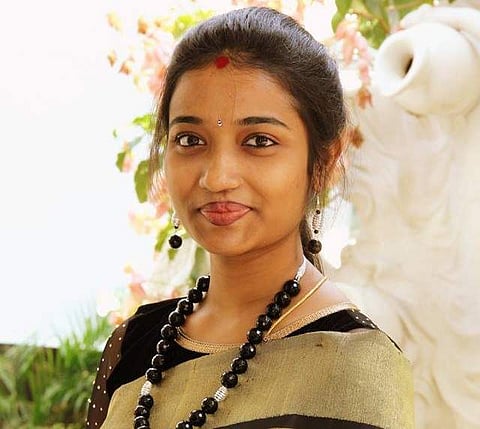

The past few weeks have possibly been the busiest in Dr Saranya Jaikumar's life. Things have been rather busy since she took charge, earlier in 2021, as a member of the Tamil Nadu Commission for Protection of Child Rights (TNCPCR). In light of Chennai schools' #MeToo season that just rocked thee news cycles, the psychologist blames the schools for not appointing a proper psychologist or having a committee to look into such issues of sexual harassment. "In most of the schools, an English teacher or a sports teacher who doesn't have too much work, often doubles up as the counsellor. This is rubbish. Also, a lot of schools have investigated issues while calling the victim and the perpetrator together," she says. "Every time a school comes to know about these incidents, they must immediately report it to law enforcement agencies. It is not your duty to sit and interrogate the (people in the) case," she says.
She has been constantly conducting awareness programmes on the Protection of Children from Sexual Offences Act through workshops, webinars and social media, reaching out to minor survivors of sexual assaults and conducting hearings and investigating issues. The TNCPCR is an autonomous body that monitors the other bodies including the police and the education department.
Things really started getting busy a few weeks ago when the students and alumni of Chennai's Padma Seshadri Bala Bhavan called out a teacher named G Rajagopal for misbehaving with them in person and during online classes — using a charged campaign on Twitter and Instagram. The issue suddenly snowballed, with students of more schools in the city, at least six, calling out their teachers for sexual harassment. This led to a number of suspensions and arrests, including that of Rajagopalan's and of self-styled spiritual guru Shiv Sankar Baba — the founder of Sushil Hari International Residential School. Following this, the Chief Minister of Tamil Nadu M K Stalin had ordered the setting up of a special high-power committee to frame guidelines to monitor online classes. The School Education Department had also set up a helpline to assist students to report instances of sexual harassment.
The change, she tells us, has been immense. She explains, "I'm don't feel bad about what has happened over the last 20 days. At least now people are coming out to speak about it. Now, people will think twice before misbehaving with a child." An Educational Psychologist, she says that while the TNCPCR has registered cases against and investigated six schools, more schools in Chennai have POCSO cases registered against its staff members.
However, she believes that these issues must not be blown out of proportion on social media, but must rather happen through the proper judicial channel. "When I spoke to Kripali (the PSBB alumna who posted the students' accounts about Rajagopalan), I asked her why she didn't speak with the authorities and she said that she didn't know that such a system existed," she says, adding, "Many people who talk to the media do not want to face legal proceedings. We can't only talk about things, they must move legally. If you're affected, go to the police and let the legal proceedings take their course."
Explaining how the nine-year-old POCSO Act is quite victim-friendly, she says that here, the burden of proof is vested with the accused and not the victim. "The child doesn't have to provide photo or video evidence. It is a victim-friendly act. However, if misused, the 'accused' can sue the complainant for defamation here too," she says. She explains the Act's provisions further. "When it comes to POCSO, the identity of the victim is protected. However, the perpetrator will get a copy of the FIR and will know who has filed the case. In most cases, the parents think that a POCSO case will lead to a child being dragged to a police station and getting shamed by the officers. But these actions are punishable. When an officer has to interview a child, they should only do it at a place where the child is comfortable and not while in a uniform. The child will also not have to meet the perpetrator," she says.
